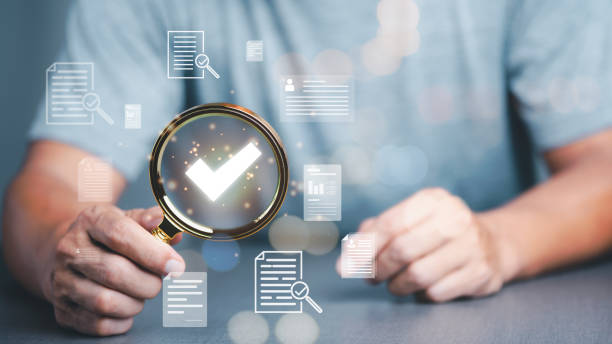Document Forgery Detection Forensic Identity Analysis to the Rescue

Document forgery has become a widespread act in today’s extremely competitive world. Imposters develop new approaches that enable them to illicitly erupt the customer’s legitimate document information. There have been various document forgery attempts over the recent few years, which is why around 57,877 people fell victim to document forgery fraud in 2022. Various industries store piles of customer’s personal documents, making them desirable to imposters. The documents must stay protected from external unauthorized access, which is why companies should implement document authentication solutions. Businesses must imply document forensic validation to prevent documents from being forged.
Document Forgery Detection – Disclose Unauthorized Entities
Document forgery is the act of manipulating and altering legitimate documents for illegal purposes. Imposters can forge the documents by changing the details mentioned in them. Documents can be forged in multiple ways, where they create synthetic identities and deepfakes to breach customer’s documents. Companies must detect the occurrence of document forgery by conducting a proper risk assessment of all the customers before onboarding them.
The financial accounts and official documents of customers should undergo a thorough document authentication process to combat the existence of false documents. Companies must confirm the customer’s proof of income before giving them access to the organization’s services. It must be ensured that the company receives documents that come from legitimate sources. The official stamps must be authenticated to verify that the documents are licensed. If the company identifies an uncertified entity, it must contact KYC regulatory authorities for further analysis. Forged documents can efficiently be detected through forensic analysis, which is investigated below.
Document Forensic Analysis A Secure Document Verification Solution
Forensic analysis uses digital methods to identify and prevent document forgery threats. Forensic Document Analysis helps to identify documents by analyzing and comparing customer’s records with known information through which manipulated content can be detected. The examiners use advanced imaging devices that detect changes in the original documents. The most authentic forensic verification analysis incorporates services from artificial intelligence log analysis, where piles of files are examined to analyze malicious document patterns.
Forensic analysis provides a secure document verification process as it uses advanced technologies to detect unauthorized information. This document analysis eliminates the probability of dealing with synthetic identities. The customer’s documents stay protected from deepfakes, securing their personal information from breaches and identity fraud. Forensic analysis can optimize the document protection of various industries.
Financial institutions can detect forged documents by conducting forensic analysis to identify the legitimacy of financial transactions. The healthcare sector can use forensic analysis to mitigate medical fraud, creating a secure medical environment for patients. The educational sector also faces severe document forgery crises, and the incorporation of forensic analysis can detect malicious activities.
KYC Verification Services A Streamlined Document Forgery Identification Regulation
KYC compliance secures the documents from illicit use. Companies must ensure that they comply with the Know Your Customer rules before conducting financial operations. They can implement digital document verification services to prevent the existence of forged documents. Businesses should use optical character recognition (OCR) solutions that enable documents to be stored digitally in the company’s database.
Intelligent character recognition (ICR) can further improve the document’s accuracy as they use machine learning neural solutions to accurately scan the document’s legitimacy. The imposters can be detected if businesses use biometric identification services, allowing them to verify their identity and compare them with documents. These verification services obligate the KYC regulations, which makes them a secure verification forum. Companies can prompt customers to conduct a face ID check, where they are required to perform specific tasks to confirm their authenticity. The businesses must conduct customer fingerprint scanning and compare them with the official fingerprints stored in legal databases. As these services comply with KYC rules, the probability of money laundering is eliminated, and document forgery is terminated.
Read more VKYC – A Digital Approach to On-board Legal Entities in Distant Businesses
Document Verification Protection from Document Forgery
Document verification can protect legitimate documents from the repercussions of document forgery. These services protect documents from the hacker’s reach because forensic analysis prevents fake identities from breaching personal information. The digital identity verification involves services that comply with KYC rules, which protect documents from being used for money laundering purposes. These optimize the account opening process because the use of biometric verification allows for efficient document registration. Customers can get their documents verified remotely, reducing the operational cost for enterprises and legitimate entities.
Summing It Up
Document forgery can negatively harm the enterprise’s functionalities as it uses synthetic identities and deepfakes to manipulate customer’s important documents for illegal benefits. Document forensic analysis prevents such actions from impacting business operations. Forensic examiners use advanced solutions that allow them to check document alterations and help in mitigating the forgery attacks from affecting customer’s financial accounts. These services improve the functioning of multiple industries, making them a secure environment for customers.





